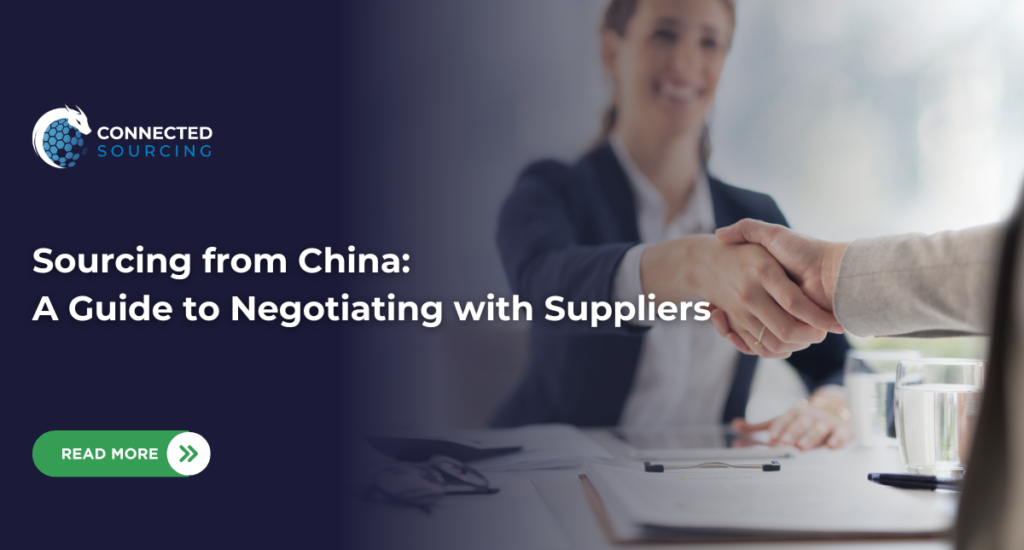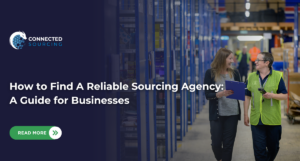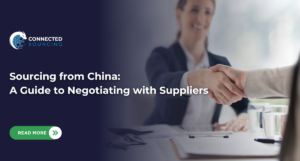
Sourcing from China offers a wealth of opportunities for businesses of all sizes. However, one crucial aspect is navigating negotiation with Chinese suppliers. This can feel overwhelming, but with a well-prepared strategy, you can secure a win-win deal.
Understanding Key Negotiation Points
Before diving in, it’s important to understand what’s negotiable. Here are common factors to discuss with your supplier:
- Price: Price is essential, but focus on value, not just the lowest quote. Negotiate factors like order volume (higher volume often leads to lower per-unit costs), payment terms (discounts for early payments can improve cash flow), and lead times (flexible lead times may allow for better pricing).
- Minimum Order Quantity (MOQ): MOQ is the minimum number of units a supplier requires per order. Negotiate a lower MOQ for smaller businesses, but be prepared for a slightly higher price per unit. Consider requesting smaller initial orders for quality testing.
- Payment Terms: Negotiate terms that work for you, such as extended payment periods or discounts for early payments.
- Quality Control: Clearly define quality standards and inspection procedures to avoid misunderstandings. Request samples and have a thorough inspection process in place. Negotiate for higher quality materials or stricter quality control measures if needed.
- Delivery Timelines: Set realistic lead times considering production and shipping. Clearly communicate deadlines and discuss potential adjustments based on order size or specific requirements.
Tips for Effective Negotiation with Chinese Suppliers
- Gather Price Benchmarks: Research typical market prices for your target product. Use online resources, industry publications, and quotes from multiple suppliers (we recommend around 4-5 suppliers!) to understand the fair value range. This allows you to negotiate realistic prices with your supplier based on market price.
- Strategic Price Offers and Concessions: Start with a slightly lower offer than your ideal price, anticipating counteroffers. Be prepared to justify your desired price point with opportunities like high order volume or long-term partnership potential. Offer concessions on other aspects like payment terms or order quantity in exchange for a more favorable price.
- Phased Ordering: Propose placing a smaller initial order with the promise of larger subsequent orders if everything goes smoothly. This shows trust and potential for future business to your supplier.
- Building Relationships: Building trust is key in Chinese business culture. Be respectful, patient, and show genuine interest in a long-term partnership. Make a good first impression, which goes a long way in China. Build trust with your supplier and show mutual respect. On the other hand, being arrogant or disrespect will be make it difficult for you to negotiate.
- Embrace Indirect Communication: Chinese business culture can be more indirect. Be patient, listen carefully, and pay attention to nonverbal cues. Don’t misinterpret silence as a negative response. It may simply indicate they are considering your offer.
Conclusion
Negotiating with Chinese suppliers can be a rewarding experience. By understanding key negotiation points and prioritizing relationship building, you can secure favorable terms and establish a strong foundation for your global sourcing success.
Do you want to make sourcing from China and negotiating with suppliers easier? Consider getting a trusted global sourcing company to handle it for you! At Connected Sourcing, we provide an end-to-end service for your sourcing needs. From finding reliable suppliers, to facilitating negotiations and transactions and even last-mile delivery, we can handle it all for you! Contact us today and let’s talk about how we can help your business thrive!

Frequently Asked Questions
Do I Need to Speak Mandarin?
Not necessarily! But understanding these tips and potentially partnering with a Mandarin-speaking sourcing agent can make things a lot easier.
What if My Supplier Doesn't Speak English Fluently?
Many global sourcing companies offer translation and interpreter services. Consider working with a sourcing agent who can manage communication for you.
Is WeChat the Only Way to Communicate?
While WeChat is popular, email is still widely used. The best method depends on your supplier's preference. Discuss communication methods during the planning stage to find a solution that works for both of you.
Why Use a Sourcing Company?
Sourcing companies can bridge the language gap, translate documents, handle negotiations, and ensure clear communication throughout the process. This frees you up to focus on other parts of your business, knowing communication is running smoothly.
By following these communication best practices, you can bridge the gap and build strong, successful partnerships with Chinese manufacturers. Remember, clear communication is the foundation of any global sourcing journey.
Connected Sourcing can help you navigate your sourcing process by providing an end-to-end solution, including communication with your suppliers. Contact us today to learn more!




















